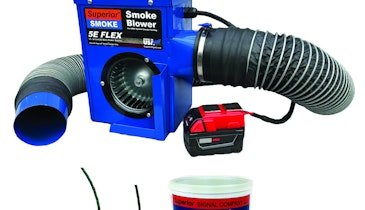Interested in Onsite Systems?
Get Onsite Systems articles, news and videos right in your inbox! Sign up now.
Onsite Systems + Get AlertsState regulations expected in early 2023 will apparently impose new nitrogen restrictions on some parts of Cape Cod.
The primary water quality problem on Cape Cod is nitrogen, said Martin Suuberg, commissioner of the state Department of Environmental Protection, according to the Cape Cod Times. And most nitrogen comes from onsite systems, which account for about 85% of wastewater flows into bays along the cape, he wrote in a letter to the town of Dennis.
To help fix this, the state proposes creating nitrogen-sensitive areas. These would cover watersheds draining into estuaries with a total maximum daily load for nitrogen. About 30 watersheds on the cape meet that criterion.
Towns in those areas would have to upgrade onsite systems to nitrogen-reducing systems within five years after the regulation is finalized. Towns would have to use the best available technology, but that could include nontraditional technologies such as permeable reactive barriers filled with wood chips to remove nitrogen as water flows through. Towns may also be able to apply for watershed permits, which would extend the deadline for upgrades to 20 years.
South Carolina looking to hire more onsite inspectors
The state is short of onsite inspectors, so it held rapid-hire meetings during the first two weeks of September.
More than 20 positions are open, said a press release from the state Department of Health and Environmental Control. The jobs are natural resources technician III, which pays $29,061 to $53,769 annually, and environmental health manager II, which pays $43,030 to $79,616 annually. Because these are state jobs, they also qualify for other state benefits.
"The maintenance and upkeep of a septic system is the responsibility of the owner, but DHEC has an essential role in assuring these systems are properly permitted to begin with and that the permittees or owners have the information and resources they need to keep them functioning for years to come," David Vaughan, director of DHEC's Division of Onsite Wastewater, Rabies Prevention and Enforcement, said in the press release.
Jobs require a high school degree and relevant work experience, but an associate’s degree or bachelor’s degree in a related field is preferred.
Online applications are available here:
Environmental health manager II
Natural resources technician III
Michigan county writes ordinance for POS onsite system inspections
Homeowners in Leelanau County will now be required to have their onsite systems inspected when their home is sold or transferred. County commissioners voted in August to create the ordinance.
The Benzie-Leelanau District Health Department will write the ordinance and will use the Benzie County ordinance as a model, reported the Traverse City Record-Eagle. The Benzie County ordinance has been in effect since 1992. Because the Leelanau ordinance is not being written from scratch, finishing it will probably take only a couple of months, said Ty Wessell, chairman of the Leelanau County Commission.
For about 30 years, county commissioners have been trying to pass such an ordinance, but it was regularly defeated by Republicans who held a majority on the commission. In May, the commission flipped to a Democratic majority.
Commissioner Rick Robbins, also a Republican, voted in favor of the ordinance. He said he had talked to many people and all township supervisors in the county. “We’re surrounded by water and in the middle [of the county] is a big lake,” Robbins said. “It only made sense. We’ve got to take care of our water resources.”
Leelanau County is part of the tourism and recreational area around Grand Traverse Bay in the northwest Lower Peninsula.
Grants available to replace failing systems in northwest Georgia
Grants are available to people in northwest Georgia to repair or replace failing onsite systems. Eligible systems are in the watersheds of South Chickamauga Creek, Salacoa Creek, Holly Creek and Lookout Creek.
Money is being distributed by the Limestone Valley Resource Conservation & Development Council. It received $243,000 from the federal government for the work. Another $166,597 is coming from landowners and other local sources.
Homeowners will pay contractors for work and will be reimbursed once the state Department of Public Health verifies that work was done according to state standards.
For more information, see the council’s website about the project: www.limestonevalley.org/septic.






